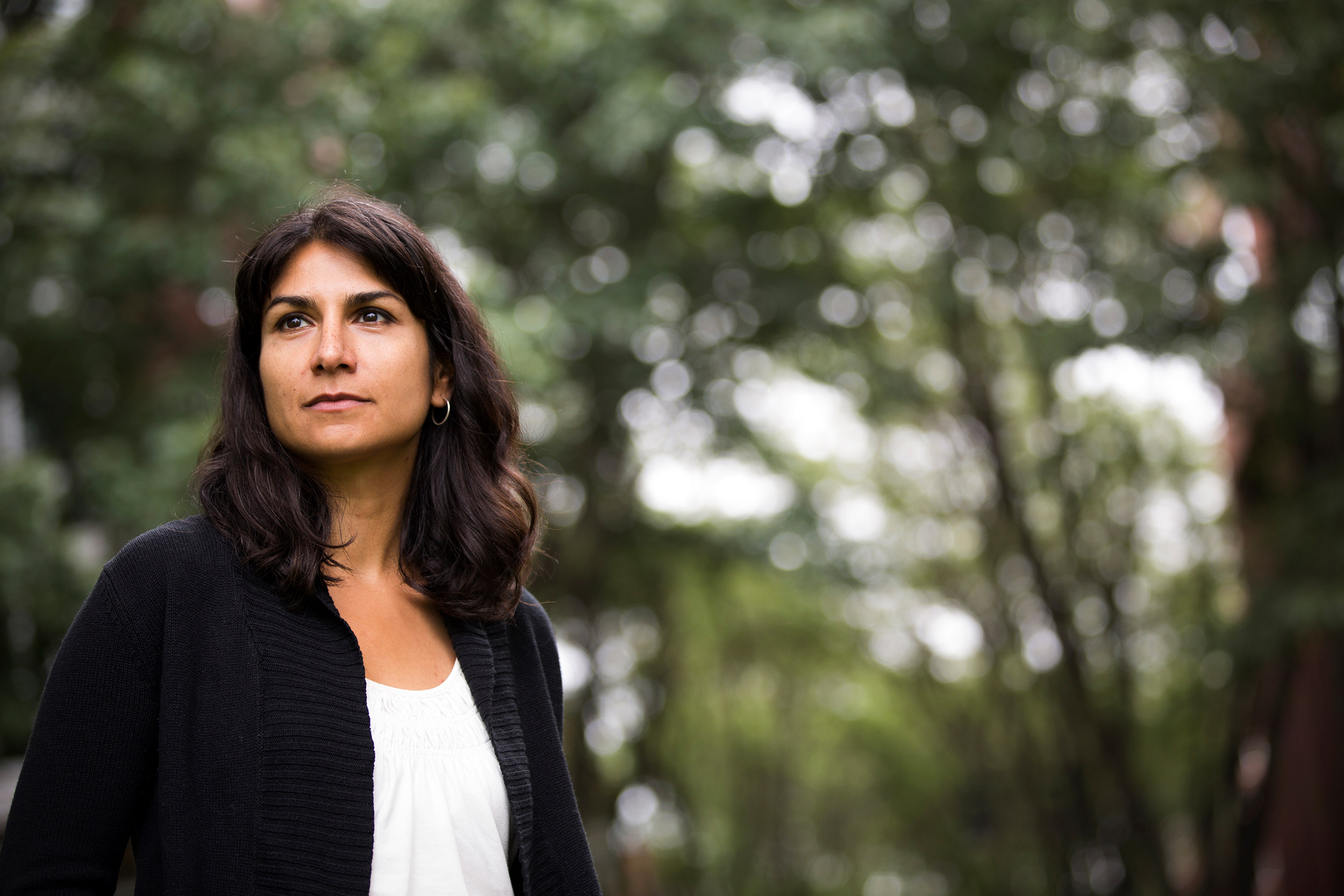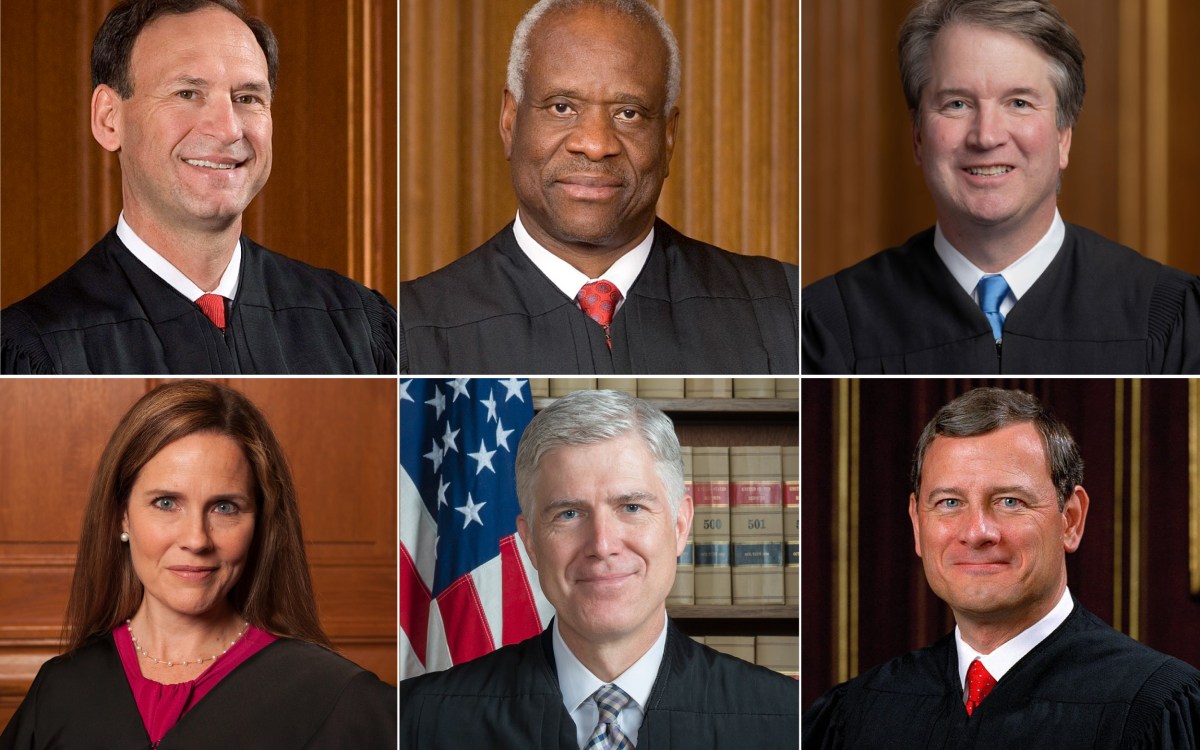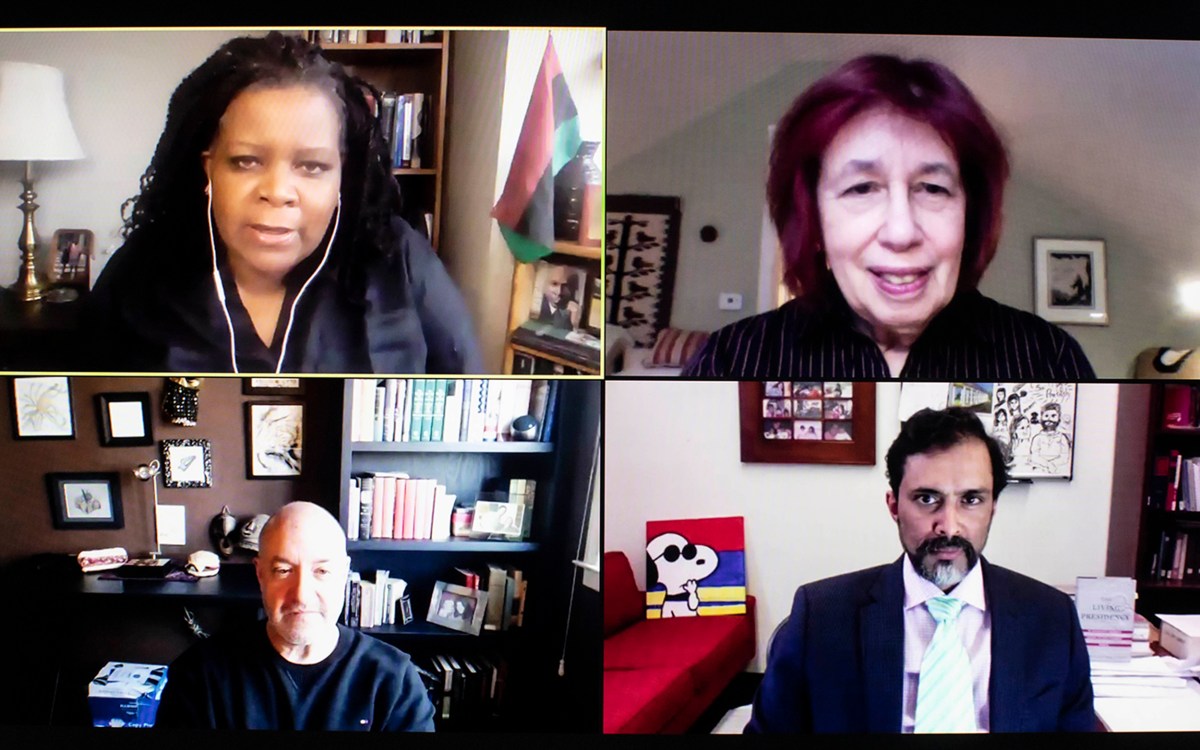
Maya Sen, who has written extensively on judicial diversity, appeared last week before a House Judiciary Committee panel to discuss her research examining the issue in the nation’s courts.
Stephanie Mitchell/Harvard file photo
An emphasis on diversity in Biden’s first court nominees
Scholar notes mix of gender, race, ethnicity, religion, and professional experience
The White House yesterday unveiled its initial picks to fill vacancies on the federal bench, drawing praise from a number of judicial observers and scholars for nominating one of the most diverse cohorts of legal professionals in recent memory.
“The federal bench has for years been overwhelmingly white and male, with professional backgrounds mostly limited to corporate or prosecutorial experience,” said Maya Sen, a political scientist and professor of public policy at Harvard Kennedy School. “By contrast, not only are these candidates demographically diverse, but they come from a diverse set of professional experiences.”
The 11 candidates President Biden has chosen include three African American women for spots on the powerful Appeals Courts: District Court Judge Ketanji Brown Jackson, ’92, J.D. ’96, a current member of Harvard’s Board of Overseers, to replace new Attorney General Merrick Garland on the influential U.S. Court of Appeals for the District of Columbia Circuit, often seen as a stepping-stone to the Supreme Court; Tiffany Cunningham for the Federal Circuit; and Candace Jackson-Akiwumi for the Seventh Circuit.
Among Biden’s nominees for U.S. District Court judgeships were: Lydia Griggsby, a U.S. Court of Federal Claims judge who, if confirmed, would become the first woman of color on the federal bench in Maryland; Zahid Quraishi, a magistrate judge who would be the first Muslim American on the federal bench; and Florence Y. Pan, a Superior Court judge who would be the first Asian American woman on the D.C. District Court. Overall nine of the candidates are women, and nine are people of color.
In announcing the nominations, the White House noted that its candidates had a wide range of backgrounds, from jurists to public defenders and prosecutors, and lawyers with experience in the private sector, military, and government.
Sen, who has written extensively on judicial diversity, appeared last week before a House Judiciary Committee panel to discuss her research examining the issue in the nation’s courts. In her testimony, she argued that the lack of diversity was not only out of step in reflecting the wide array of educational and professional experiences found in the legal profession, but the “lack of diversity risks undermining public trust in the judiciary.”
“Evidence shows that diverse groups of decision-makers reach better-justified decisions.”
Maya Sen, Harvard Kennedy School
Sen examined the demographic and professional breakdown of the 172 judges actively serving on federal Appeals Courts and the 613 active judges presiding over District Courts, and found a judiciary out of sync with demographic trends in the country. “Evidence shows that diverse groups of decision-makers reach better-justified decisions,” Sen argued in her testimony.
While many legal observers were not surprised to see Biden’s initial appointments differ from the mostly white, male lawyers whom former President Donald Trump nominated to federal judgeships, these newest court picks also stand out in their array of professional diversity. “The federal courts currently lean heavily toward lawyers with previous private practice, prosecutorial, or law professor experience,” said Sen.
Even under former President Barack Obama, who filled 36 percent of judgeships during his time in office with racial minorities and 42 percent with women, the vast majority came from traditional legal backgrounds with stints as prosecutors, law professors, or corporate attorneys. “While Barack Obama did a good job of appointing many people from diverse racial and ethnic backgrounds,” noted Sen, “the Obama administration did less well in terms of appointing people from a variety of professional backgrounds.”
Of the 11 candidates nominated yesterday, three previously served as state or federal public defenders, including Deborah Boardman, a magistrate judge who was nominated for a District Court post in Maryland. Boardman spent more than a decade working as a federal public defender. “Public defenders might bring a new perspective to issues of criminal sentencing, and I expect that some of them will closely interrogate over-criminalization and over-policing, especially of minority communities,” said Sen.
With the courts confronting a thicket of religious liberty cases on issues ranging from employment discrimination to LGBTQ rights, Quraishi’s nomination may bring an otherwise unrepresented perspective to the bench. “The federal courts hear a large number of cases having to do with religious freedoms, and it is very important to see someone from a religious minority background be nominated,” said Sen.
Biden made clear that finding candidates who reflect a broad diversity of views was a central goal. “Together they represent the broad diversity of background, experience, and perspective that makes our nation strong,” he said in a statement.







